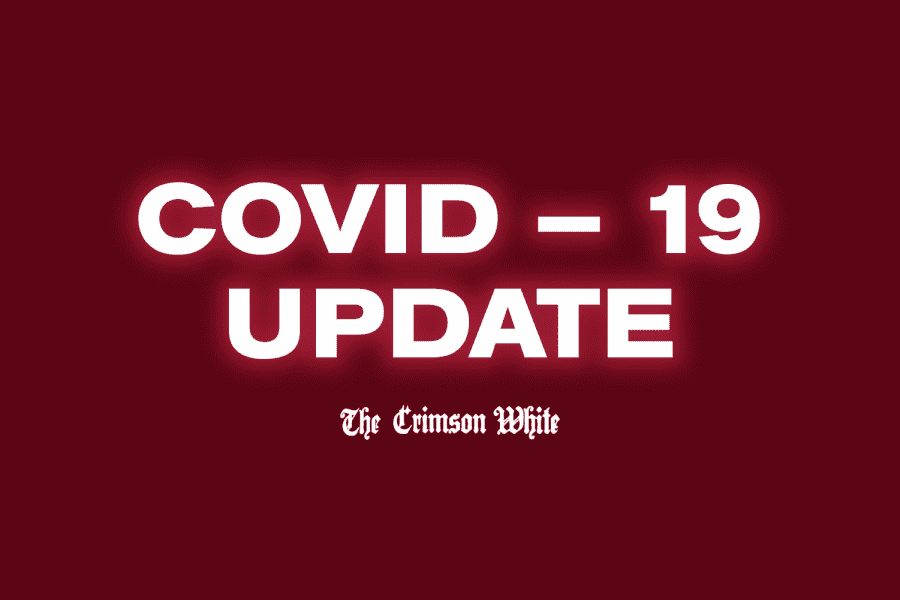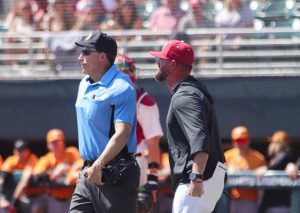COVID on campus: What’s changed?
August 18, 2021
The 2020-2021 academic year took place in the shadow of the COVID-19 pandemic. Events were canceled or postponed, classes were divided between Zoom and socially distanced face-to-face meetings, and masks emerged as the accessory du jour.
So in July, when the University announced it would return to pre-pandemic operations this fall, reactions were mixed. Some students said they were eager for a more normal college experience but expressed worry that the University was easing restrictions too quickly, especially given the rise of the delta variant.
Now, as the semester kicks off, the delta variant and new guidance from the Centers for Disease Control and Prevention have forced the University to modify its plan. Most of the restrictions from last year are gone, but masks are once again required for everyone in indoor public spaces — at least until September. The University is paying students $40 in Bama Cash to get vaccinated and giving away big-ticket items in a raffle.
Masks
One of the most notable changes in the health and safety plan the University released in July was the removal of mask requirements for vaccinated individuals in most settings. At the time, this change was in line with existing guidance from the CDC.
One week later, however, the CDC updated its recommendation in response to new information about the delta variant, recommending that vaccinated people once again mask up “in areas of substantial or high transmission.” Such areas now account for most of the U.S., including Alabama, where all 67 counties are experiencing high transmission.
On Aug. 5, the University reinstated its campus-wide mask mandate for all individuals. The new mandate, which took effect Aug. 6, requires masks in indoor public spaces “where and when distancing is not possible” and in classrooms regardless of physical distancing.
The current mask requirement is set to expire Sept. 3.
Vaccines
Three COVID-19 vaccines have been authorized by the Food and Drug Administration for emergency use in the U.S. The University is offering two of them, Pfizer and Moderna, at its medical facilities.
These vaccines have always been free in the U.S. Now, UA students can make money by proving they’ve gotten the vaccine. Students can use the University’s online form to report their vaccinations by Aug. 28 at 5 p.m. to receive a $40 deposit in their Bama Cash account.
That’s double the $20 incentive the University first announced last month. If students reported their vaccination before Aug. 9, they will receive an additional $20 in their account.
Only one dose of a COVID-19 vaccine is required for the reward, but for two-dose vaccines like Pfizer and Moderna, public health experts say getting both shots is key for protection against the virus.
Students who submit proof of COVID-19 vaccination also have the chance to win one of 23 prizes, including three all-access campus parking passes, 10 on-campus housing scholarships worth $1,000 each, six pairs of away-game football tickets, and four lunches with Vice President of Student Life Myron Pope.
Students can get the Pfizer vaccine at the Student Health Center or the Moderna vaccine at University Medical Center.
In the past month, vaccinations have risen significantly throughout the U.S. But in Alabama, as in much of the South, vaccination rates remain relatively low, and case counts continue to climb, fueled by the highly contagious delta variant.
About 35% of Alabamians are fully vaccinated against COVID-19, the lowest rate in the nation. In Tuscaloosa County, just 31% of residents are fully vaccinated.
On Tuesday the University of Alabama System posted vaccination data to its COVID-19 dashboard, showing that more than 72.4% of faculty and staff at The University of Alabama have received at least one dose of a vaccine.
It’s not clear how much of the University’s student body has been vaccinated.
The Chronicle of Higher Education reports that more than 700 colleges have so far announced COVID-19 vaccine requirements for students or employees, mostly in politically liberal states. No colleges in Alabama have said they will require COVID-19 vaccinations.
A state law passed in May effectively prohibits universities from requiring COVID-19 vaccines. Governor Kay Ivey, who signed the bill, has urged Alabamians to get vaccinated, saying, “It’s the unvaccinated folks who are letting us down.”
University administrators, too, are encouraging students to get shots.
“Vaccinations are the key to a successful fall semester and the key to moving beyond these types of [mask] requirements,” said Dr. Richard Friend, dean of the College of Community Health Sciences.
Testing
Unlike in previous semesters, the University didn’t require entry testing at all. The new health and safety plan also doesn’t mention sentinel testing — random COVID-19 tests that were mandatory last year for students living on campus and optional for most others.
Last year, the UA System’s COVID-19 dashboard reported weekly case counts but not the number of tests conducted. The dashboard did, however, show the positivity rate for sentinel tests.
From September 2020 through April 2021, The University of Alabama conducted more than 14,000 sentinel tests, 1.24% of which were positive, according to the dashboard. The positivity rate reached a peak of 4.47% during the week from Jan. 29 to Feb. 4, 2021.
The UA System stopped publishing new data on the dashboard in April.
The rules on testing are now strictest for unvaccinated students, who are required to self-isolate for two weeks following COVID-19 exposure and to get for-cause tests “at the discretion of the university.”
According to the health and safety plan, UA System campuses should continue to provide symptomatic and exposure testing to unvaccinated individuals but may offer only symptomatic testing to vaccinated individuals. The CDC advises fully vaccinated people who have had close contact with an infected person to get tested between three and five days after exposure, regardless of whether or not they have symptoms.
The health and safety plan also stipulates that “all members of the campus community” must notify their university if they test positive for COVID-19.
Classes
The University plans for a return to in-person classes this fall. There will be no classroom capacities or social distancing guidelines.
Hybrid options and online classes are not currently set to be offered. However, the fall syllabi statement on COVID-19 states that the University is free to change the “course delivery methods” at any time in accordance with public health guidelines.
Professors are encouraged to provide all teaching in person and record lectures for students who cannot attend class for medical reasons.



















![UPDATE | New details have emerged about U.S. Immigration and Customs Enforcement’s arrest of doctoral student Alireza Doroudi.
— Yesterday, a University spokesperson confirmed that a doctoral student was arrested by federal immigration authorities, without providing the student’s name, declining to share specific information due to federal privacy laws.
“International students studying at the University are valued members of the campus community, and International Student and Scholar Services is available to assist international students who have questions,” said Alex House, associate director of media relations for the University. “UA has and will continue to follow all immigration laws and cooperate with federal authorities.”
— An employee at the Pickens County Jail confirmed that Doroudi is being held there, adding that the facility typically sends ICE detainees to a detention facility in Louisiana.
— The Department of Homeland Security provided a statement about Doroudi’s arrest:
“ICE HSI [Homeland Security Investigations] made this arrest in accordance with the State Department’s revocation of Doroudi’s student visa. This individual posed significant national security concerns,” a DHS spokesperson said. The statement did not provide details about why it claimed Doroudi posed national security concerns.
— Students for Justice in Palestine at UA, formerly known as Bama Students for Palestine, said in a statement on social media Thursday that it was “outraged” to learn of his detainment and that he "was not involved, nor has he ever been involved in any organizing or protests related to our organization."
This is a developing story and will continue to be updated. Read the updates at the link in our bio.](https://scontent-iad3-1.cdninstagram.com/v/t51.75761-15/486944895_18492822301025566_6944596333023050206_n.jpg?stp=dst-jpg_e35_tt6&_nc_cat=107&ccb=1-7&_nc_sid=18de74&_nc_ohc=hnp26Pzwsm0Q7kNvgH09W0S&_nc_oc=AdmIBEMuR_aRgaBd00Hlot3E59Vj_4lQyCImLLgp8CLdbxpSmLU25dhU_MO_Zul-qcU&_nc_zt=23&_nc_ht=scontent-iad3-1.cdninstagram.com&edm=AM6HXa8EAAAA&_nc_gid=Eef0YMIFzxMaiUpFitZOLg&oh=00_AYGXXmlh-QsW5bKnKx6w8LK3Rdz_HpdqlpeEraurXrQNsQ&oe=67F30BB0)

